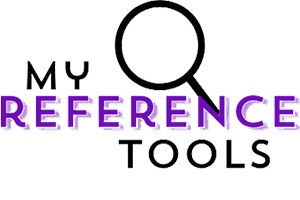How Professionals Use MOOCs for Budget-Friendly Skill Enhancement

MOOCs, or Massive Open Online Courses, have become a game-changer for professionals eager to sharpen their skills without breaking the bank. Whether you’re aiming to climb the career ladder, transition into a new industry, or simply stay ahead in a competitive job market, MOOCs offer an accessible, flexible, and affordable path to learning. These online platforms open up a world of opportunities to gain in-demand skills, often from prestigious institutions, at a fraction of the cost of traditional education.
Why Professionals Choose MOOCs
Flexibility and Convenience
The flexibility of MOOCs is a key reason behind their popularity. Unlike traditional programs that require rigid schedules and physical attendance, MOOCs allow you to learn on your own terms. With access to course materials 24/7, you can decide when and where to study. This is particularly valuable for working professionals who juggle packed schedules. For instance, you could complete a module during your morning commute, review course videos over lunch, or dedicate a quiet Sunday afternoon to assignments.
MOOCs are also self-paced, meaning you can accelerate your learning if you’re up for a challenge or take your time if you’re balancing other demands. This adaptability makes them an ideal solution for busy individuals who want to upskill without sacrificing personal or professional commitments.
Wide Range of Subjects
Another major advantage of MOOCs is the breadth of topics they cover. Whether you want to improve your technical skills, hone your soft skills, or explore entirely new fields, there’s likely a course for you. Popular topics include data analytics, programming, project management, and digital marketing, while niche subjects like environmental sustainability or blockchain technology are also readily available. Notable platforms such as Coursera, edX, Udemy, FutureLearn, and Khan Academy partner with top institutions and industry leaders to ensure high-quality content. For example, Coursera collaborates with Stanford University and Google, making advanced, credible education accessible to global learners.
This diversity empowers professionals to stay relevant and ahead of trends, whether they’re in a rapidly evolving tech field or pursuing opportunities in emerging industries. For instance, a software engineer may explore Artificial Intelligence courses to stay aligned with industry advancements, while a public relations manager might focus on storytelling or crisis management courses as the needs of their role evolve.
Budget-Friendly Learning
Traditional degree programs can cost tens of thousands of dollars, making advanced education unattainable for many. MOOCs level the playing field by offering budget-friendly alternatives. Many courses are free to audit, meaning you can access information without spending a dime. While fees may apply if you want to earn a verified certificate, the costs are significantly lower than traditional credentials, often ranging from $50 to $300.
Some platforms go even further, offering subscription-based models or discounted bundles. Coursera Plus, for example, provides unlimited access to thousands of courses for an annual fee. Similarly, edX offers MicroMasters programs, which are collections of graduate-level courses from top universities offered at a fraction of the cost of a full degree.
How Professionals Leverage MOOCs for Career Growth
1. Identifying Skill Gaps
Successful learning begins with knowing what to learn. Professionals often start by evaluating their current skill set and identifying areas for improvement. Tools like skills assessments, job descriptions for desired roles, or performance reviews can highlight gaps. For example, someone aspiring to be a product manager might find that they lack knowledge of user experience (UX) design or agile development methodologies. Once these gaps are identified, MOOCs provide a clear path to addressing them.
2. Targeting Industry-Relevant Courses
Choosing the right courses is crucial for maximizing career benefits. Professionals often gravitate toward courses that align with industry demands and practical applications. For instance, HR professionals interested in data-driven recruitment might explore People Analytics courses on platforms like edX, which feature real-world scenarios and case studies. Meanwhile, a marketing professional could enhance their SEO or social media skills with customized offerings from Udemy.
MOOC platforms often classify their courses by difficulty level, so learners can progress from beginner-friendly modules to more challenging material. This incremental learning ensures a smooth transition through topics and reduces the feeling of being overwhelmed.
3. Building Structured Learning Paths
Rather than taking courses sporadically, professionals can map out structured learning journeys to ensure comprehensive progression. Many platforms help with this by offering curated programs such as Coursera’s “Specializations” or edX’s “Professional Certificates.” These programs bundle multiple courses into a logically ordered series that builds expertise over time. For example, someone interested in digital transformation could enroll in an “Artificial Intelligence for Business” Specialization, starting with an introductory course and progressing to advanced topics like deploying AI models or ethical considerations.
A well-structured path also fosters a sense of accomplishment and helps learners stay motivated by tracking measurable progress.
4. Applying Skills in Real Time
One of the hallmarks of MOOC learning is its immediate applicability. Unlike traditional academic settings where lessons may feel theoretical, MOOCs focus on real-world relevance. Professionals are encouraged to apply newly acquired skills and techniques directly to their jobs. For instance, after completing a Python programming course, an analyst might begin automating data analysis tasks, streamlining workflow, and showcasing their newly honed abilities to management.
Learning by doing reinforces knowledge and demonstrates initiative, which can significantly boost a professional’s profile within their organization.
5. Earning Credible Certificates
Certificates from well-respected institutions or industry leaders can be a significant asset. While the knowledge gained from MOOCs is the ultimate reward, having a credential to demonstrate your expertise adds professional credibility. For example, courses offered in partnership with MIT, Harvard, or Google carry a degree of prestige that resonates with hiring managers or clients. Many professionals add these certifications to their LinkedIn profiles or resumes, conveying a commitment to ongoing learning.
Real-World Examples of MOOC Success
Project Management
Olivia, a project coordinator in Dublin, aspired to advance in her role. She used MOOCs from the University of California, Irvine, to prepare for her PMP (Project Management Professional) certification. The risk management and agile methodologies modules provided actionable strategies that Olivia began using almost immediately. Over the next year, her proactive learning contributed to a promotion to a project manager role.
Data Science
Rahul, a supply chain analyst in Mumbai, realized data visualization was becoming essential in his field. Enrolling in edX’s Data Science MicroMasters from UC San Diego, Rahul deepened his skills in Python, predictive analytics, and Tableau dashboards. His capstone project even caught his team lead’s attention, resulting in elevated responsibilities and an internal promotion.
Soft Skills Enhancement
Jane, a sales and account manager based in New York, noticed room for improvement in her leadership abilities. By taking free courses on FutureLearn and LinkedIn Learning focused on communication and team building, Jane sharpened her soft skills. She credits this learning for her success in stepping into a higher leadership role within her team.
Entrepreneurship
David, a budding entrepreneur, turned to MOOCs to develop a strong business foundation. Combining free content on business modeling from edX with payment-based Specializations on digital marketing on Coursera, he launched a boutique e-commerce store. Today, David attributes his smooth business operations and effective customer acquisition strategies to insights gained through these courses.
Tips for Maximizing MOOC Benefits
To reap the full rewards of MOOCs, it’s essential to approach them strategically. Consider the following tips:
1. Set Clear Goals
Define what you want to accomplish before starting. Whether it’s aiming for a promotion, switching careers, or mastering a specific software, having a clear goal keeps you motivated and focused.
2. Engage with the Community
Most MOOCs provide forums and collaborative tools to connect with fellow learners. Participating in group discussions or peer reviews not only enriches your understanding but also expands your professional network. Many learners even report forming valuable industry connections through these platforms.
3. Build a Portfolio
Documenting your progress is crucial, especially if you plan to showcase your accomplishments during job applications. Keep a record of assignments, projects, and certificates. For instance, online coding bootcamps often encourage participants to build a GitHub portfolio showcasing their work, which becomes an excellent calling card for recruiters.
4. Maintain Consistency
Consistency is key when it comes to online learning. Create a schedule that works for you and stick to it. Dedicate an hour a day or set weekly learning goals to maintain momentum. Platforms often offer learning streak features or reminders to keep you on track.
5. Stay Updated
No matter how skilled you become, staying current is important. Fields like technology, marketing, and data science evolve rapidly, so enrolling in supplementary courses periodically ensures your skills remain fresh and competitive.
Start Upskilling Today
MOOCs have democratized access to world-class education, putting career growth and personal development within reach for anyone willing to invest their time and effort. Whether you’re aiming to deepen your expertise, branch into unfamiliar territory, or fast-track career aspirations, there’s a course out there for you. Take the first step by exploring platforms like Coursera, edX, and Udemy. Pick your path, commit to learning, and join the millions of professionals leveraging MOOCs to unlock their full potential.



